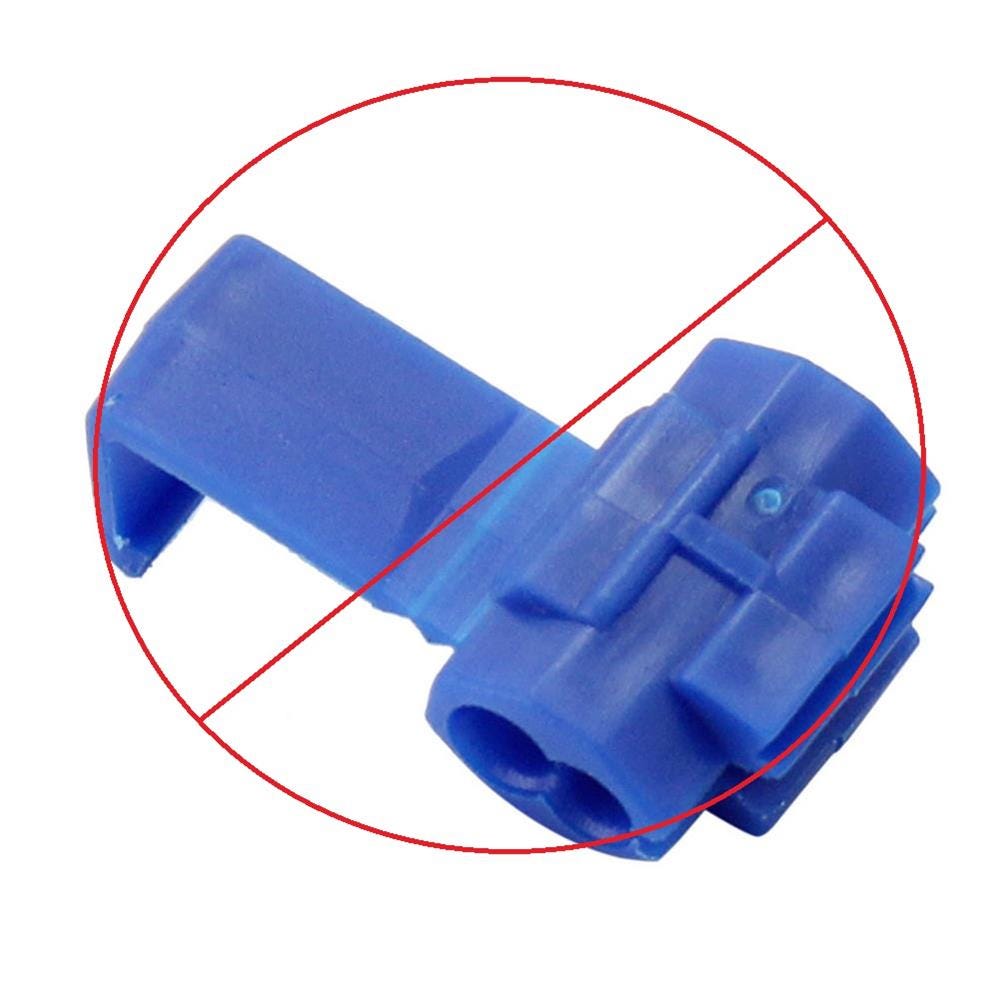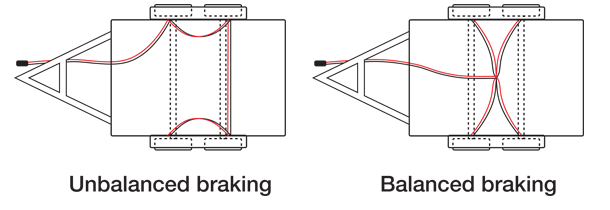Pump the brakes! It’s spring and that means one thing… It’s touring time!
If you’re anything like us here at REDARC, you’re excited to drag the caravan or camper trailer out of hibernation and shoot off somewhere to enjoy some quality time with friends and family.
But before you embark on your epic trip, there are a few quick and easy trailer wiring checks you can do to ensure you don’t run into any hiccups on the black top. Always take the time to look over our REDARC wiring guides before making any drastic changes.
5 common issues with trailer wiring
Corrosion
Unless you’re a grey nomad off living the dream, chances are your trusty home away from home sits in the one spot, lifeless for more than half the year. It's ok, we understand, but the trusty trailer plug that brings the beast to life can be susceptible to corrosion from the weather thrown at it during the down time. The pins inside the plug can have dirt and god knows what caked inside, maybe even spiders, so it pays to give those connector pins a freshen up!
Shoot on down to the local auto accessory store and grab yourself a can of WD-40 and proceed to blast the plug, this will clear out anything that’ll add resistance to the trailer connection. Make sure you do the same to the trailer plug and socket on the tow vehicle too, just to be sure. Once it’s all washed out, connect and disconnect the plug 3-4 times to further improve the connection.
Doing this simple clean will ensure the trailer doesn’t lose connection while you drive, this is especially important as the trailer plug is also supplying power to the brakes on the trailer and you don’t want to lose those! Whilst you’re there checking the trailer plug, grab a small flat head screwdriver and make sure the pins aren’t bent out of place or pinched on either plug. If they are carefully bend them back into position.
If the pins look like they’re rusted, have green copper corrosion or are bent beyond repair, just replace the plug. Trailer plugs are cheap and extremely easy to swap out, all you need is a screwdriver and the ability to remember where the wires went. This is trailer wiring 101, and something to know any time you hit the road.
Damaged wiring
Ask any auto electrician, a very common trailer wiring fault is usually caused by the family pet thinking it’s a chew toy! Any sort of tear in the wire harness presents the potential of a short to earth - which is not good. Damaged wires can also be caused by rocks and anything else you may come across on the road, especially if you’re doing some hardcore off road driving.
The best preventative for this type of damage is to become OCD neat with your trailer wiring. Make sure the wires under the trailer are run through good quality conduit and secured better than Alcatraz, no hanging wires anywhere! Also very important is to never, ever use scotch locks to join wires! Just don’t do it, they’re not designed for this type of application and will cause issues on the road.


Unbalanced braking
There are two ways to do trailer brake wiring, the right way and the wrong way. Uneven braking occurs when the length of the wire between each of the magnet connections adds resistance and therefore creates a difference in braking performance at each wheel. This often makes the trailer feel like it's twisting when you brake.


A brake controller has only one output wire. If that wire runs to one wheel, then the other, then the other and the other as demonstrated above, it creates that twisting feeling under braking. If your trailer is wired as above, you will notice one wheel or one side getting very hot and the other wheels staying very cool. This is because the hot wheels are literally doing all the braking and it will cause excessive wear to those brakes.
All our Tow Pro brake controller wiring guides are online, so make sure you have a good look before setting off. The length of wire from the single brake controller output wire to each magnet should be equal to achieve best braking balance; this ensures each wheel brakes with the same amount of power and the trailer brakes evenly.
Earth
It’s a good idea to check your earth wire in the trailer plug. Most trailer plugs are wired to suit very basic trailers, once you fit a brake controller the brake power wire is upgraded but the earth is left standard. The earth cable is just as important as the positive, think of it as a circle; the positive cable delivers the power, the earth cable completes the circuit. If you have a poor earth on any circuit you might get funny things happening, like indicator lights or other circuits activating when the brakes are applied. This is caused by a bad earth on the brake circuit, so the power gets earthed through other circuits on the trailer. Upgrade the earth cable through the trailer plug and make a good chassis earth where the cable gets a good metal on metal connection, then seal the connection with a sealant spray.
Poor connections
Connection and quality means everything in electronics, especially when the safety of you and your family is concerned. This is why we have developed our range of Tow-Pro Electric Trailer Brake Controllers with circuit analysis to detect and indicate any faults with trailer brakes and/or wiring (you should also check out our diagram on how to wire up your tow-pro elite.)
You don’t want to get the wiring or installation wrong when installing a brake controller; after all, safety is absolutely paramount when it comes to your brakes – it’s not something you want to mess around with yourself. This is why we recommend a circuit breaker kit which has all the gear your installer needs to adequately wire up the Tow-Pro Elite.
For optimum performance and operation of your electric brake controller, the circuit breaker kit satisfies our stringent standards. Also, it's worth noting the 5 common brake controller installation mistakes that you can go through with your installer. Just remember, prevention is always better than cure. Look after your trailer and trailer wiring well, and it will look after you for many memory making moments to come.
And remember you can always check out our resources section for all things on electric brake controllers.
